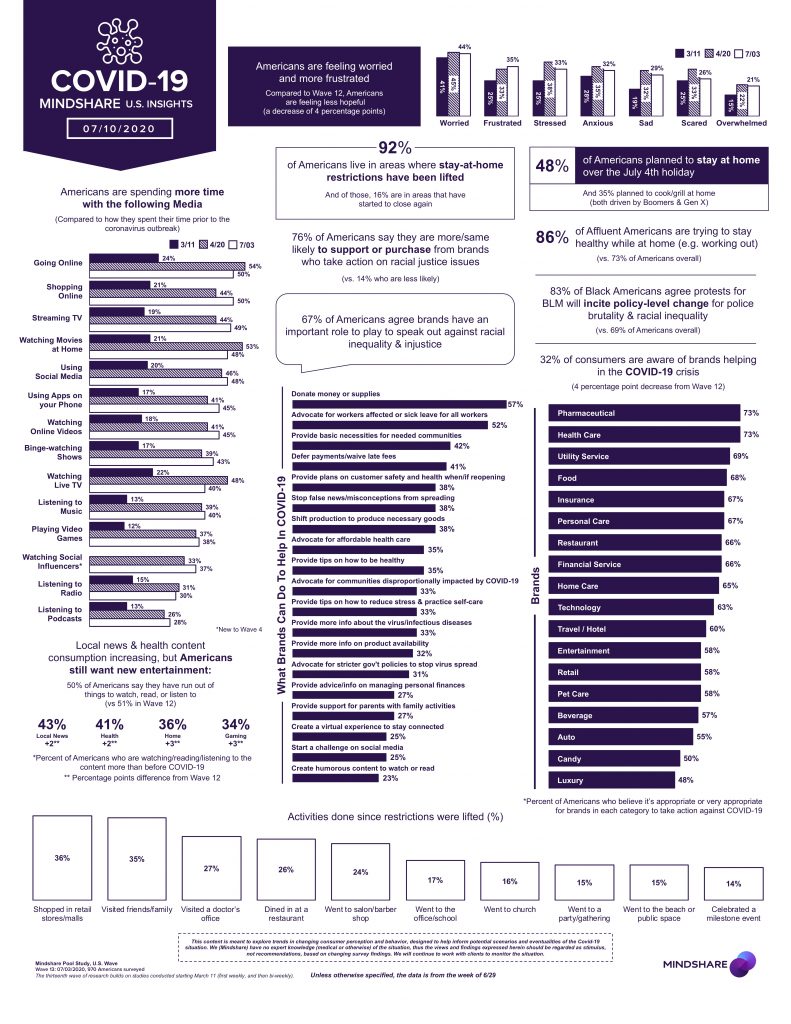10th July 2020
Wave 13: A pandemic media paradox
Wave 13 of our POOL research, which examines how COVID-19 is affecting consumer behaviors, media consumption, and more, took place W/C July 3, with 970 participants.
Five key insights from the research:
- As new cases continue to emerge across the country, sentiment turns back towards worry, frustration, and anxiety over the situation. Concerns are over the handling of it, apprehension that others aren’t social distancing, worries over finances, and more.
- Americans report the importance of protocols, like social distancing and mandated mask wearing, in reducing the risk of COVID-19, while washing hands and self-quarantining rank highest in importance. Although mask wearing has become politicized as nearly half believe mask wearing is a political issue rather than a public health one.
- Urgency around a second outbreak and stay-at-home orders has increased as more hot spots occur. While concerns over racial injustice, the U.S. economy, and the ability to afford rent/necessities are still pressing, they are being seen as less urgent.
- Generational divide over support for Black Lives Matter continues, with Boomers least likely to support the movement. Black Americans most likely to believe that America needs to do more to end police brutality and racial inequality.
- Americans continue to stream more content online, compared to watching live TV. Over the July 4th holiday weekend, half of Americans planned to stay at home. Others planned to spend more time with friends/family in-person, on media, or outdoors.
More takeaways and insights from MediaPost, which looks at a potential paradox in people's pandemic media behaviors.
Excerpt: Months into the COVID-19 pandemic a surprising media paradox has manifested, according to an analysis of 13 waves of surveys from Mindshare's "Pool" studies of American media consumers.
Roughly half of Americans surveyed said they are explicitly limiting the amount of time they spend on media to avoid hearing news about the pandemic, while roughly the same percentage say they have also run out of things to watch, read or listen to on media.
The studies reveal a potentially related paradox that has implications for brand marketers leaning in or out of pandemic-related marketing and messaging: The percentage of Americans who say they are aware -- on an unaided basis -- of any brands or companies that are helping with the crisis remains relatively low, only 32% in the most recent wave.
Read the full MediaPost article.
More stats and data:
